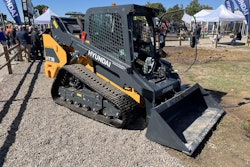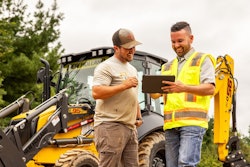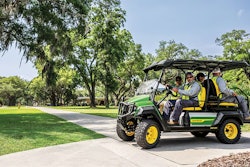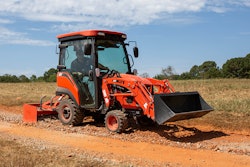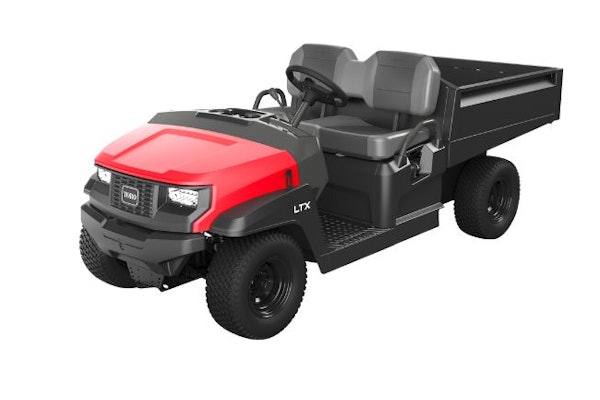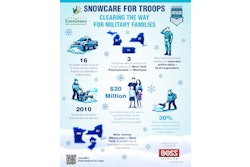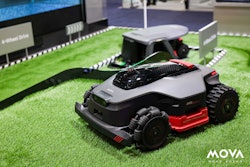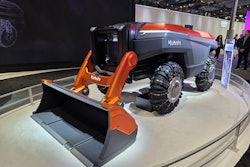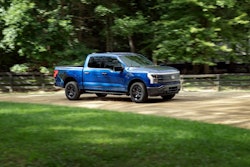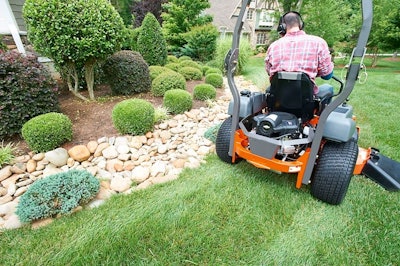
Autumn is here and landscape contractors are knee-deep in the busy season clearing leaves, aerating lawns, power washing surfaces, and getting ready for snow season. The Outdoor Power Equipment Institute (OPEI), an international trade association representing outdoor power equipment, small engine, utility vehicle, golf car and personal transport vehicle manufacturers and suppliers, reminds landscape contractors and professionals to keep safety in mind.
“Before you use a mower, trimmer, blower, power washer, chainsaw, pruner, portable generator, snow thrower, or other piece of outdoor power equipment, it’s important to ensure that you and your employees are up-to-date on handling and safety procedures,” said Kris Kiser, president and CEO of OPEI.
“As the business owner, you set the tone for the safety culture with your employees,” said Kiser. “Modeling good safety procedures, such as always checking for kids or pets in the area before working, or determining a safe way to clear leaves – before you start - are important steps you can take to help your employees stay safe.”
Here are tips to help:
Read your owner’s manual. Follow all guidelines for your outdoor power equipment and familiarize yourself with the controls. Everyone using a piece of equipment should review how to shut on, shut off, and use the equipment safely. If you have lost your manual, look it up online (and save a copy on your computer for reference in the future).
Inspect equipment you are getting out for fall or winter usage. Check the air filter, oil level and the gasoline tank. Also check for loose belts and missing or damaged parts. Ensure all safety guards are in place and do not allow employees to disable them. Replace any parts needed or take your equipment to a qualified service representative for servicing. If using electric equipment that relies on power cords, make sure cords are in good condition and not damaged.
Service before storage. Do all maintenance as directed by the owner’s manual for equipment you plan to store for the winter. Clean, change oil, swap filters, and handle any repairs before parking it.
Keep gear sheltered. Store summer equipment clean and dry. Keep winter gear handy but out of the weather.
Protect your power by only using E10 or less fuel in gasoline-powered outdoor power equipment. Make sure your workers know to use the right fuel. With today’s higher ethanol content fuels, most manufacturers are recommending a fuel stabilizer be used, especially if all the gas in the tank is not used up right away. Any fuel containing more than 10 percent ethanol can damage, and is illegal to use, in small engine equipment not designed for it. For winter equipment, use fresh fuel (most engines run on no more than 10% ethanol), add stabilizer according to manufacturer’s guidelines, and use fuel within 30 days.
Store fuel safely. Label fuel cans with the date of purchase and ethanol content. Never put “old” gas in your outdoor power equipment. Always store fuel out of the reach of children or pets and in approved containers.
Charge batteries correctly. For battery-powered equipment, recharge your equipment only with the charger specified by the manufacturer. A charger that is suitable for one type of battery pack may create a risk of fire when used with another battery pack. Follow all charging instructions. Do not charge the battery pack or tool outside the temperature range specified in the instructions.
Store batteries safely. When the battery pack is not in use, keep it away from other metal objects, like paper clips, coins, keys, nails, screws or other small metal objects, that can make a connection from one terminal to another. Shorting the battery terminals together may cause burns or a fire. Before long-term storage, fully charge batteries, keep them away from metal, and store them in a climate-controlled space.
Clean your equipment and store it in a dry place with any needed safety gear. Remove any dirt, oil or grass. Clean equipment will run more efficiently and last longer. Never store outdoor power equipment in a place that is damp or wet.
Dress for safety. Require workers to wear protective shoes, sunscreen if needed, hearing protection, and appropriate clothing, including reflective outerwear. Have enough safety gear for everyone on your team, such as safety glasses, reflective vests, gloves or chaps.
Review safety procedures. It’s always important for outdoor workers to be aware of their surroundings and the environments they are working in. Properties with slopes, low-hanging limbs, or near busy roadways or water can require your workers to take additional safety precautions. Talk with them in advance about how to work safely in different environments they may encounter.
Reminder: Always keep kids and pets away when operating outdoor power equipment.
For information on safe fueling and charging, see https://www.opei.org/programs/ethanolwarning/
